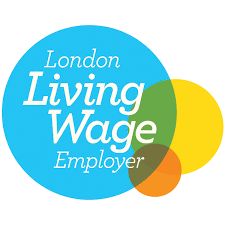
In a recent blog we featured the potential benefits to small businesses outlined in the Queen’s Speech. But what did the recent budget deliver for small businesses? Let’s take a quick look!
First the good news!
There are three changes that will be of benefit to most small businesses:
- The Annual Investment Allowance (AIA) - which gives businesses 100% tax relief on the cost of most new equipment - will be set permanently at £200,000 from 1st January 2016. The amount has varied considerably in recent years and was due to fall to £25,000 at the end of the year. This is its highest ever permanent amount, which is ideal for small companies and will enable businesses to budget more easily.
- The overall rate of Corporation Tax - currently at 20% - is to be reduced to 19% in 2017 and then further to 18% in 2020.
- There will be statutory exemption - from tax, National Insurance, and P11D reporting - for Trivial Employee Benefits costing less than £50 per employee per year.
Now the not so good news!
The goal of a new £9 hourly minimum wage for the over-25s by 2020 could make things difficult for small businesses. John Allen, chairman of the Federation of Small Businesses, warned that many SMEs, specifically in retail and the service sector, will find the new rates challenging. The increase in minimum wage - currently £6.50 for over 21’s- will start at £7.20 next April.
There are also two tax changes for limited companies that only have one Director/shareholder that are not such good news:
- The Employment Allowance - which currently reduces employer’s National Insurance by £2000 pa - is being withdrawn for these companies from April 2016. However it is being raised by £1000 to £3000 for other employers, so may help other small businesses to create jobs.
- Similarly there are changes to the Dividend Tax Regime that will impact upon those sole Director/shareholders who currently take some of their financial rewards as dividends rather than salary. At the moment such dividends are effectively tax-free as they are treated as paid after a 10% dividend tax credit has been applied. But from April 2016 this 10% tax credit will be replaced by only the first £5,000 a year of dividend income being exempt from tax. Dividends above this figure are subject to income tax at the rates of:
- 7.5% for basic rate taxpayers
- 32.5% for higher rate taxpayers
- 38.1% for additional rate taxpayers
The Jury’s Out!
Further areas that are being reviewed for future budgets are listed below:
- Taxation of travel and subsistence expenses
- Closer alignment of income tax and National Insurance
- National Insurance for the self-employed - will Class 2 be replaced by Class 4?
- Taxation of small companies
- Improved effectiveness of IR35 legislation
- Digital reporting to replace the tax return
We will keep watching for further news on these and will report back in due course!
Meanwhile for unsecured business loans and advice do get in touch with us at Fair Business Loans and we will help you continue to keep moving forward through these changing times!




